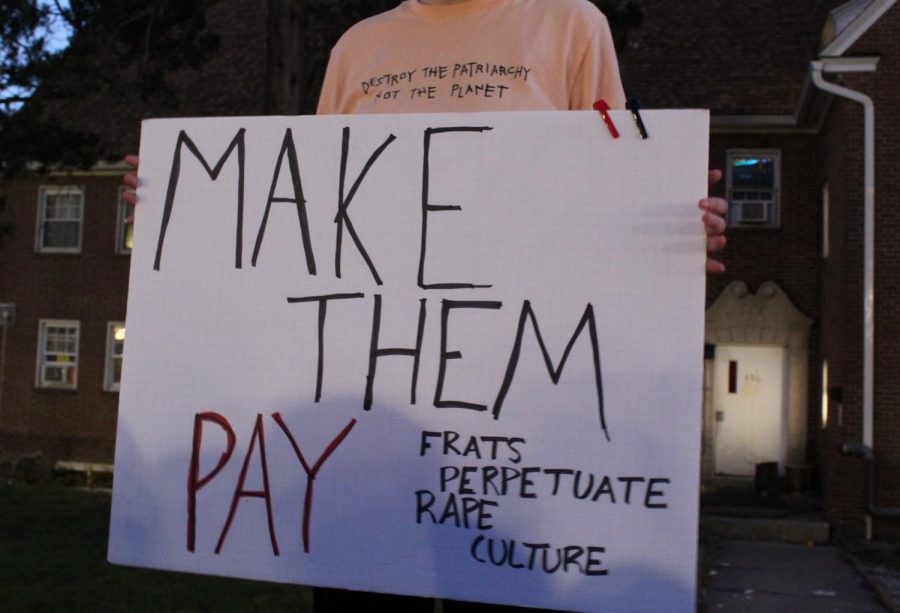UMass SGA discusses proposed amendments to the Survivor’s Bill of Rights
The SGA encouraged discussion from students after proposing 22 amendments to the Survivor’s Bill of Rights.
AMHERST — The UMass Amherst Student Government Association (SGA) held an open meeting in the Student Union Blackbox Theatre on Thursday to discuss proposed amendments to the Survivor’s Bill of Rights.
The Survivor’s Bill of Rights is a set of rights for survivors of sexual and gender-based violence. The bill was passed through a student referendum in March 2021, but it didn’t draw much attention from the student body until about a month ago, after allegations of sexual assault at Theta Chi.
At the meeting, members of the SGA addressed 22 amendments proposed by the administration to the SBOR. Leaders expressed concerns with the changes and opened the floor for discussion with student attendees.
“There are some genuine legal suggestions,” said Hayden Latmir-Ireland, Administrative Affairs Committee Chair. “And there are some other places where they just proposed language that they feel fits better.”
Latmir-Ireland is cited as one of the bill’s writers. She also runs the @umasssurvivorsrights Instagram account.
“We will definitely be proposing an alternative… that actually supports survivors and is an actual declaration of rights as opposed to some vague suggestions,” she said.
Most of the proposed amendments centered on Title IX regulations. Of the 22 proposed changes, nine of them referred to Title IX. Since UMass is a federally-funded institution, it must comply with Title IX. For this reason, certain SBOR points face legal challenges.
However, students believe that many of the proposed changes place excessive responsibility on the Title IX Coordinator. Speaking on behalf of other students, Latmir-Ireland said, “They are putting a lot of responsibility, power, etc. in the hands of one singular person… It’s a lot on one person, for something that touches so many students.”
“It seems like a lack of accountability,” said one student in the audience.
SGA members also voiced concerns about the way the administration amended numbers. For instance, the original language of the SBOR states that survivors are guaranteed “the conclusion of the adjudication process in about 60 days.”
The administration amended this point to assure survivors a hearing that will be “as expeditious as possible.”
“Admin love to get rid of that number so that there isn’t a strict deadline that they are forced to face,” said Hewan Weldai, Chair of the Social Justice and Empowerment Committee. “We don’t want to lose the number to hold them accountable.”
Latmir-Ireland also said that the administration seems to use existing policies as a guideline for whether or how points of the bill should be amended.
“It’s pretty clear to me and to a lot of people on this campus that the existing policies aren’t working,” she said. “That’s why we’re here and doing this.”
Certain amendments were deemed completely unnecessary by SGA leaders. The original language of the document states that students should “be informed through their professors and syllabi about supportive measures and resources.”
The administration proposed that, instead, the Title IX Coordinator will inform students via email once per semester. They reasoned that “in order for the syllabi to include this information the issue would have to go through the university governance process.”
Audrey Gabriel, chair of the Social Justice and Empowerment Committee, responded, “Alright, put it through the university governance process then.”
Students are encouraged to voice their opinions on the proposed amendments through a Google Form.












